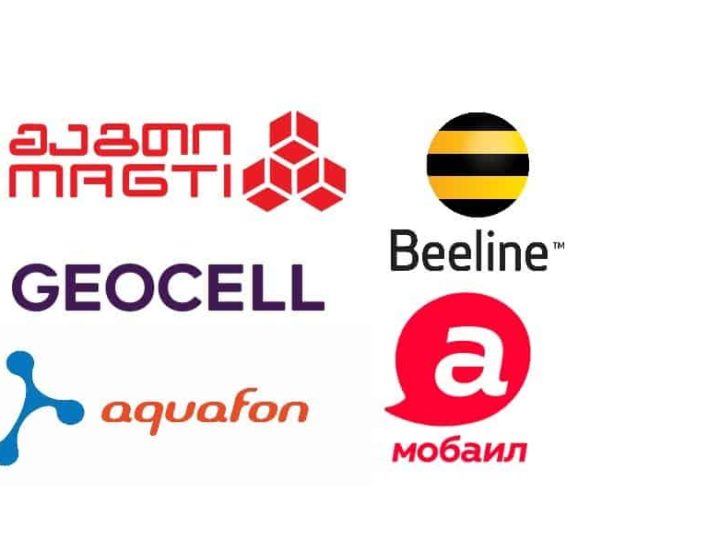
Telecommunication companies in Georgia
Telecommunication companies in Georgia have played a significant role in the country’s technological and economic development. The sector includes a combination of mobile network operators, internet service providers, and landline providers. Over the past decade, Georgia has witnessed impressive growth in digital infrastructure, largely driven by both domestic and international investments. This expansion has enhanced connectivity and created new opportunities in various sectors, from commerce to education, contributing to the nation’s economic and social development.
1. Major Players in the Georgian Telecommunications Market: The telecommunication sector in Georgia is primarily dominated by three major companies: MagtiCom, Silknet, and Beeline. These companies offer mobile, internet, and fixed-line services, reaching millions across the country and providing various options for consumers.
MagtiCom: Founded in 1996, MagtiCom is one of the leading telecommunications companies in Georgia, holding a substantial share of the market. Known for its extensive network coverage and high-quality services, MagtiCom offers mobile, fixed-line, and broadband services. The company has invested heavily in expanding its 4G network across the country, providing reliable high-speed internet access in urban and rural areas. Recently, it has also started deploying 5G technology to meet growing demand for faster mobile internet.
Silknet: Silknet, a subsidiary of the Silk Road Group, is another major player in the Georgian telecommunications market. In 2018, it acquired Geocell, one of the oldest mobile network operators in the country, which significantly expanded its market presence. Silknet provides a full suite of telecommunication services, including mobile, internet, television, and fixed-line services. Silknet’s television services are particularly popular, offering customers access to a wide variety of local and international channels. The company has focused on expanding fiber-optic networks to ensure high-speed internet in Georgia’s urban and rural areas.
Beeline (Veon Georgia): Beeline is the brand of Veon Georgia, a subsidiary of the Veon Group, a multinational telecommunications services company. Beeline entered the Georgian market in 2007 and has since provided competitive services, particularly in the mobile sector. While Beeline is smaller than MagtiCom and Silknet, it remains a significant player by focusing on affordable mobile and internet plans, catering to a younger demographic and budget-conscious users. Beeline’s services are valued for their simplicity and affordability, which makes them popular among Georgian customers.
2. Internet Service Providers and Broadband Expansion: Apart from the primary telecommunications companies, there are various internet service providers (ISPs) in Georgia that play an essential role in expanding internet accessibility. Companies like Caucasus Online and Skynet specialize in providing broadband services to urban areas, though efforts to extend reliable internet connections to rural regions have increased. Fiber-optic networks, in particular, are expanding to support Georgia’s digital economy, with major telecom companies investing heavily in fiber-optic infrastructure to support high-speed internet and improve service quality.
3. Market Competition and Regulatory Environment: The Georgian telecommunications sector is regulated by the Georgian National Communications Commission (GNCC), which oversees industry standards and fair competition among providers. The GNCC also supports initiatives to improve network security, reduce tariffs, and expand services into underserved areas. Market competition is relatively high, especially in the mobile segment, where the presence of multiple providers encourages competitive pricing and innovative services. This competition benefits Georgian consumers, who enjoy a range of service options at competitive prices.
4. Impact on Society and Economy: Telecommunication companies in Georgia have made significant contributions to the nation’s digital transformation. Mobile internet penetration is high, with many Georgians relying on their smartphones for internet access, business activities, and social connectivity. The expansion of telecommunications infrastructure has also fostered growth in sectors like e-commerce, e-learning, and telemedicine, providing opportunities for rural communities to access services that were previously unavailable. Furthermore, the increased connectivity has helped attract foreign investment, with Georgia positioning itself as an attractive hub for technology startups in the Caucasus region.
5. Future Prospects and 5G Development: As the demand for digital services grows, Georgian telecommunications companies are expected to continue investing in infrastructure improvements. 5G technology is a critical focus for companies like MagtiCom and Silknet, who aim to expand their service offerings with ultra-fast mobile internet, supporting more advanced applications like Internet of Things (IoT) solutions and smart city initiatives. This progression toward 5G aligns with Georgia’s national goal to strengthen its digital economy and position itself as a regional leader in telecommunications technology.
In summary, telecommunications companies in Georgia, led by MagtiCom, Silknet, and Beeline, have developed an extensive network infrastructure that supports widespread connectivity across the country. Through ongoing investments and regulatory support, Georgia’s telecommunications industry continues to evolve, providing both economic opportunities and social benefits that contribute to the nation’s overall development.





Leave a Reply